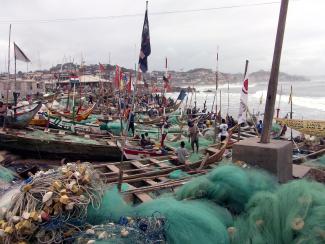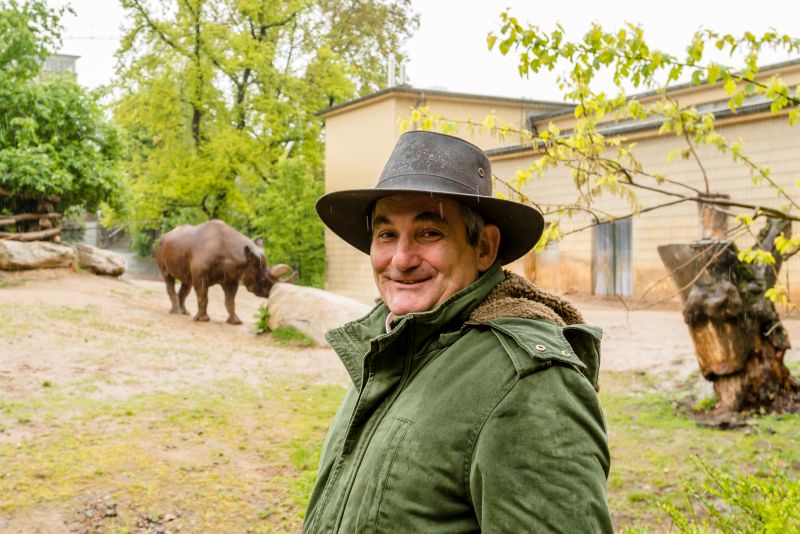Climate cooperation
Ghana through the eyes of an insider

As a retired aid worker, he now takes one group of interested people from Bonn on a guided tour of the west African country every year. Thanks to Thüsing’s knowledge and contacts, they get to see Ghana through the eyes of an insider. “We visit a primary school on an island with poor infrastructure, or we are invited to a village with a traditional cult by the local chief”, Thüsing says.
The trips start with a one-week tour through the Volta Region in Ghana’s southeast, which was part of German Togoland before the First World War. Tourist attractions there include buildings from the colonial era. After the round trip, the group stays in Cape Coast for another week. This coastal town has 150,000 inhabitants and cooperates with Bonn in a climate project to restore the eco-system of the Fosu Lagoon. The lagoon is an important resource for local fishermen as well as the habitat of rare plants and animals. It plays an important role in maintaining the local micro-climate, and Cape Coast’s citizens use it for recreational purposes.
The Bonn-Cape Coast Association is a civil-society initiative that supports the climate partnership. Thüsing is a member. This year, he is organising the trip for the forth time. He allows a maximum of 15 participants. They always travel at the time of the Fethu Afahye festival in early September. The festival offers lots of live music, ceremonies and other events in Cape Coast. It marks the start of the fishing season in the Fosu Lagoon. “There are boat races, and the regional chiefs ask their ancestors at a shrine for a good catch”, Thüsing says.
That cannot be taken for granted. The water quality of the lagoon is bad, and the number of fish has declined significantly. “People misuse the lagoon as a waste dump,” Thüsing criticises. He knows of a car workshop directly at the lagoon’s bank – “and you can imagine where the oil ends up”. The good news is that there are plans to relocate the workshop.
Climate change is an issue too. According to Engagement Global’s Service Agency Communities in One World, which supports the climate partnership on behalf of Germany’s Federal Ministry for Economic Cooperation and Development, the surface temperature of the lagoon has risen. Moreover, the water level has fallen, and heavy rainfall has become more frequent.
The Service Agency reports that participants of the restoration project set up nurseries to provide the shore area with new mangroves and trees. Moreover, they have installed big sieves to stop plastic waste from floating in. According to Thüsing, clean-up sessions were organised, some of them in cooperation with local schools. “The real work still lies ahead though”, he says.
The tourists he guides are not directly involved in the lagoon project, but they gather information on site and report in schools and adult-education institutions back home. As their insights are shared, they matter in particular. (kd)








